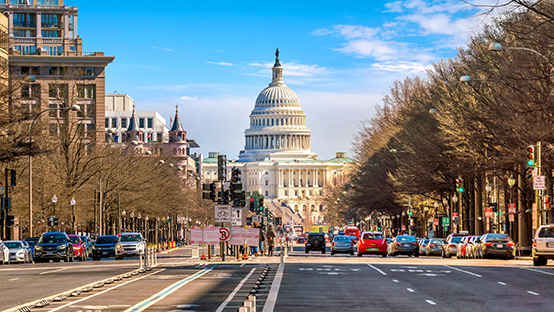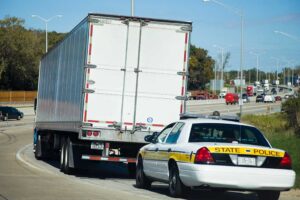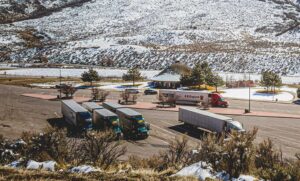Everyone who reads my articles — all two of you — have probably figured out that I enjoy writing about, thinking about and arguing about what the federal government can and can’t do. Some of the things Congress proposes are so blatantly unconstitutional that you know it will never happen.
But it is cute when they try.
A recent subject many people find fascinating (well, me and maybe three others, but this is my column, so I’m going to write about it) is the prospect of the District of Columbia (DC) becoming a state.
Of course, this is a highly political issue because if it occurs the State of DC would get a couple of senators and additional representatives. On the surface this does not seem like a big deal; however, DC has always seemed to lean in the direction of the Democratic party. As you can imagine, the Democrats do not think this is a big deal. The Republicans disagree.
For what it is worth, there has been a push for DC statehood in some form since around 1991. However, with the Democrats currently in control of Congress and the White House, now may be the best chance for DC statehood. For me, the interesting part is the mechanics of how this could happen.
At a hearing in the House of Representatives March 22, the American Civil Liberties Union, more commonly known as the ACLU, filed testimony that Congress, with presidential approval, could establish DC as the 51st state. At the same time, The Heritage Foundation took a different approach and said that a constitutional amendment would be required for DC to become a state.
As background, Article IV, Section 3 of the Constitution (the “Admissions Clause”) grants Congress the power to create a new state — with some limitations of course. For example, this section states that a new state cannot be formed within the jurisdiction of another without the consent of the legislature of both the state AND Congress. Historically, Congress has created new states based on majority vote and presidential approval.
However, DC is unique in that it is specifically addresses the Constitution. As you may remember from your civics class, DC was created as a federal enclave to serve as the seat of the government and was carved out of the states of Maryland and Virginia. The Constitution also gave Congress authority over the new territory.
In 1961, the 23rd Amendment was ratified, giving DC three electoral votes for president. In 1970 Congress approved a nonvoting DC delegate in the House, meaning the residents who live in DC and pay federal taxes still have no voting representation in Congress.
On April 22 of this year, the House approved DC statehood legislation that would carve out a small enclave of federal buildings, including the White House, to serve as the seat of the federal government. President Joe Biden supports the bill. A similar bill died in the Senate last year, but with Democrats controlling Congress and the White House, the chances of passage are somewhat better. Interestingly, this would basically give whichever party holds the White House a three electoral vote head start.
Opponents of the bill claim several constitutional problems exist. First and foremost, there’s the 23rd Amendment. Opponents claim that for DC to become a state, this amendment would have to be repealed prior or simultaneously with DC becoming a state. In its current form, the bill simply provides for expedited consideration of joint resolution appealing the amendment. Repealing an amendment would require ratification by 38 states. Since 30 states are currently led by Republicans this seems unlikely.
Quite simply, whether Congress can create a state from DC raises several novel constitutional questions. And, as you can imagine, there is little case law on this subject. Of course, these questions would ultimately fall to the U.S. Supreme Court, leaving the justices to sift through all the constitutional issues and determine whether Congress and the president could carve a new state out of DC or if statehood would require the repeal of the 23rd Amendment.
See … I told you there are only about three of us who find this interesting.
Brad Klepper is a regular contributor to The Trucker, providing valuable insights for drivers and motor carriers. He serves as president of Drivers Legal Plan, a national law firm offering discounted CDL ticket defense to members, and Interstate Trucker, a law firm providing CDL defense with no monthly fees.









Well IF your referring to the fact that I do like most of what I am reading, and I would also love the permission to share this with most of the “trucking community” I belong to on “facebook” and a few other platforms that might just make you more popular then originally planned, I would like permission, yah I am one for old school beliefs, asking is better than asking for forgiveness, don’t you think?
Our readers are always welcome to share The Trucker’s content on social media and other platforms, as long as the posts link back to the original story. Thank you for your query!